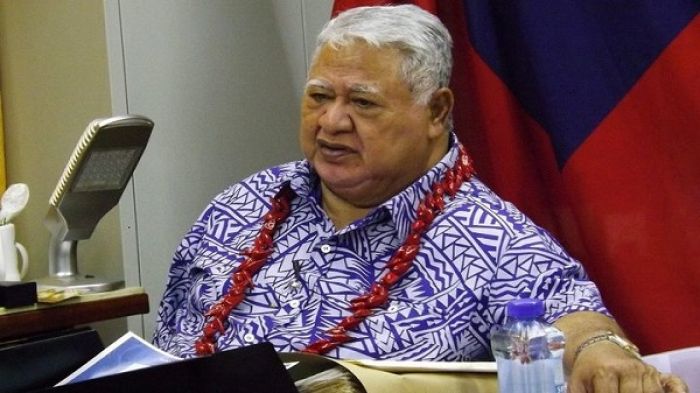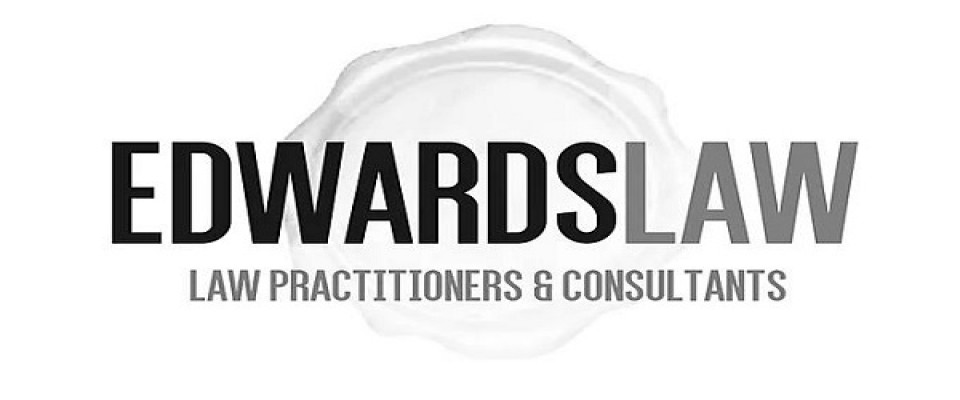The rise of tyranny in Sāmoa Featured
 Sāmoan PM, Tuila'epa Sailele Malielegaoi
Sāmoan PM, Tuila'epa Sailele Malielegaoi
By Fuimaono Dylan Asafo
Opinion - Tuila'epa Sailele Malielegaoi has been the Prime Minister of Sāmoa for 21 years.
In coming into office in November 1998, Tuila'epa has had the great responsibility of guiding and leading the people of Sāmoa into the 21st century. And this hasn't been an easy task. As his memoir, Pālemia accurately summarises:
"His premiership has been marked by political and economic crises, natural disasters, regional tensions and local challenges. Tuila'epa's political career started during turbulent times but has resulted in an unprecedented period of political stability and economic development through his leadership in modernising the economy, improving education and health and reducing poverty in Sāmoa."
However, while Tuila'epa's reign has provided Sāmoa with overall "stability" and a steady era of "development", it's been marked by a lot of drama as well.
From his infamous feud with Fijian Prime Minister Frank Bainimarama to the three assassination attempts he's survived - I think all Sāmoans can agree there has never been a dull moment in Tuila'epa's time in office.
Tuila'epa has also shown us that he isn't scared of spearheading bold and controversial changes to the law. The 1998 law to switch roads in Sāmoa from right to left-hand traffic and the 2011 law to move Sāmoa one day ahead to align with New Zealand and Australia have made this very clear.
But now, with the proposed constitutional amendments to make fundamental changes to the Land and Titles Court (nicely summarised here and here), Tuila'epa faces his biggest controversy yet.
Like many Sāmoans around the world, I've been watching eagerly as the controversy has unfolded (and continues to unfold) bit by dramatic bit. But the annoying thing about political controversies is that you can spend hours reading articles and watching the news, and at the end of it all, still be unsure about who to trust and what the truth is - especially in the age of "fake news" and "post-truth politics".
As someone who has spent the last year at an American law school studying the US Constitution, and Trump's daily violation of it - I've kind of gotten use to this overwhelming feeling of uncertainty.
But, if there's one thing I think we can learn from the ongoing constitutional dramas in the US, it's that we can get a sense about what the truth is by paying attention to how leaders choose to respond to disagreements and concerns about any changes they seek to make to the law.
In other words, we need to ask ourselves - in the face of disagreement, do leaders humble themselves to engage in the democratic processes of consultation and debate to try to resolve issues in good faith? Or, like Trump, do they lash out, refuse to address the substance of any concerns and resort to unrelated personal attacks and insults against anyone who dares to disagree with them in a disturbing demonstration of tyranny?
In looking at the current political situation in Sāmoa - from Tuila'epa referring to the Deputy Prime Minister Fiame Naomi Mata'afa as the "devil" in a tense parliamentary debate to lawyers at the Attorney General's office being warned not to oppose the proposed constitutional amendments or make submissions to the Sāmoa Law Society - it appears that we are, unfortunately, dealing with the latter.
Therefore, it's time that all Sāmoans across the diaspora talk about the rise of tyranny in Sāmoa, and more importantly, what needs to be done to end it.
A helpful definition of tyranny explains that it is the arbitrary exercise of power that is marked by the "suppression of free speech; curtailment or abolition of civil liberties; laws passed by decree without public debate or popular approval; arrest and imprisonment without trial; torture and murder by unchecked agencies of the government; and theft, extortion and embezzlement by politicians in power".
To date, the current controversy in Sāmoa has seen "the suppression of free speech" with the silencing directive from Tuila'epa on the Attorney General's office as noted above. Similarly, Tuila'epa recently told an MP from his own party (the Human Rights Protection Party, HRRP), to resign after they voiced their opposition to the amendments in a meeting at their village.
But at the centre of the current controversy are concerns about "the curtailment or abolition of civil liberties" and the passing of laws "without public debate or popular approval" among a number of different leaders and groups who have come forward to oppose the proposed amendments.
Opponents to the amendments include Sāmoa's Ombudsman, nine Supreme Court Justices and senior Judges of the Sāmoan Judiciary, senior Sāmoan lawyers, the Sāmoa Law Society, the former Attorney General of Sāmoa, the former Head of State, senior matai/chiefly leaders, the President of the New Zealand Law Society, and the International Bar Association's Human Rights Institute.
Therefore, while Tuila'epa and the recently resigned Attorney General, Lemalu Hermann Retzlaff, have told us that the proposed amendments are justified and that we have nothing to worry about - the extent and diversity of the opposition to the amendments (and Tuila'epa's responses to them) strongly suggest, if not confirm, that tyrannical power is being exercised.
But, while our eyes are currently focused on the current controversy, we must also note that this is not the first demonstration of Tuila'epa's tyranny. In fact, a more in-depth look into Tuila'epa's rule finds that there are other major examples of tyrannical governance in Sāmoa.
One example is Tuila'epa's current mishandling of the recent Sāmoan measles crisis. While there have been calls from both inside and outside of the Sāmoan Government for an inquiry into how the Government managed the outbreak that took the lives of 81 children, Tuila'epa has made clear his refusal to launch such an inquiry.
He has said that an inquiry isn't necessary because his Government wasn't late in carrying out the vaccination campaign (as New Zealand's Ministry of Health claims) and that it was clear that the measles came from a visitor from New Zealand.
The former Head of State, Tuiatua Tupua Tamasese Efi, has recently suggested that Tuila'epa's "strong resistance to a Commission of Inquiry implies a fear of discovery that the truth will be exposed".
The truth being that the Tuila'epa's government refused to fund the necessary support for the measles epidemic after deciding to wet-lease a plane for Sāmoa Airways instead.
Rather than providing a direct response to Tuiatua's concerns, Tuila'epa resorted to personally insulting him, remarking "maybe the old man is deaf and I doubt that he watched the TV about the public announcements on the vaccination campaigns".
Another example of Tuila'epa's tyranny was the passing of the criminal libel law in December 2017 to effectively criminalise any criticisms and accusations being made against him.
Legal scholar Beatrice Tabangcora has identified several problems with this law, including: the lack of public consultation before the law's passing (due to Tuliaepa dismissing the need for it); the fact that the costs of Tuliaepa prosecuting anyone under the law are likely to fall on the public; and the law's infringement on the right to freedom of speech and the free press.
As expected, the unjust and self-serving nature of this law was seen in October 2019 with the seven-week imprisonment of Malele Paulo for accusing Tuliaepa, on Facebook, of being involved in a plot to assassinate his uncle.
As political studies scholar Jope Tarai has observed, Paulo's imprisonment is the first case in the Pacific where a person has been jailed for making negative comments on social media, and it sets "a worrying precedent for freedom of expression in Sāmoa and the Pacific".
One other recent example of tyrannical power in Sāmoa was the constitutional amendment to declare Sāmoa a Christian state in June 2017.
Tuila'epa and Retzlaff claimed that the amendment to be a genuine and non-threatening recognition of Sāmoa's commitment to Christianity. However, legal scholar Dr Bal Kama and political analyst Grant Wyeth have both pointed out the Trump-inspired Islamaphobic motivations behind the law that have been informed by a baseless fear of Islamic extremism in Sāmoa.
While some Sāmoans may still support this law nonetheless, the terrorist attack in a Christchurch mosque in March last year (and the string of attacks it inspired around the world) serves as a reminder that the need to resist Islamaphobic fearmongering is greater than ever.
Furthermore, Tuila'epa's and Retzlaff's claim that the amendment genuinely recognises the importance of Christianity in Sāmoa was arguably undermined with the passing of a law to tax all church pastors in June 2018.
Again, while some may agree with the general idea that church pastors should be taxed, opponents to the law noted that it was passed without adequate consultation and that it breached the Constitution's protection of Christianity - a protection that was supposedly guaranteed with the amendment just one year before.
Therefore, current constitutional controversy and the above examples make it clear we need to think of ways to confront tyranny in Sāmoa. Accordingly, in Part Two of this two part series, I suggest ways that Tuila'epa's tyranny in Sāmoa be overcome.
Fuimaono Dylan Asafo is a law lecturer at the Faculty of Law at the University of Auckland and holds a Master of Laws from Harvard University and a Master of Laws (First Class Honours) from the University of Auckland. This is the first of his two-part opinion piece.
- RNZI



